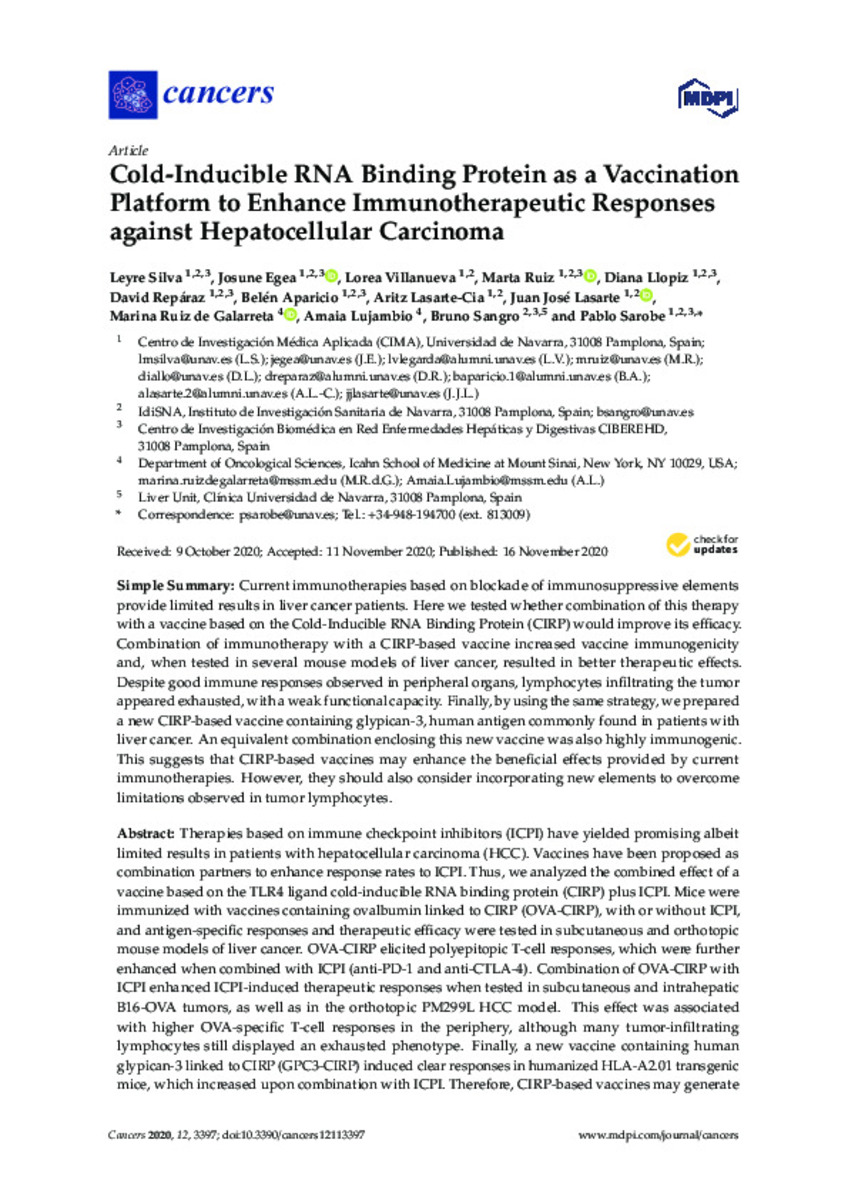Cold-Inducible RNA Binding Protein as a Vaccination Platform to Enhance Immunotherapeutic Responses against Hepatocellular Carcinoma
Keywords:
Cold-inducible RNA binding protein
Therapeutic vaccination
Hepatocellular carcinoma
Immune checkpoint inhibitors
Citation:
Silva, L. (Leyre); Egea, J. (Josune); Villanueva, L. (Lorea); et al. "Cold-Inducible RNA Binding Protein as a Vaccination Platform to Enhance Immunotherapeutic Responses against Hepatocellular Carcinoma". Cancers. 12 (11), 2020,
Statistics and impact
0 citas en

0 citas en

Items in Dadun are protected by copyright, with all rights reserved, unless otherwise indicated.







